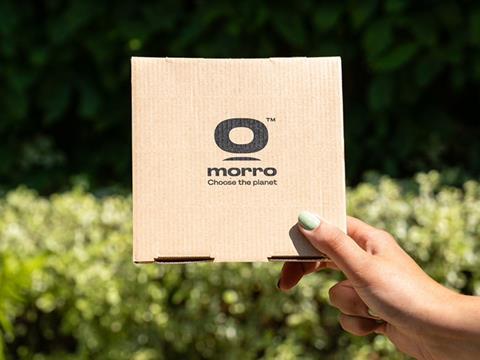
Xampla and the National Physical Laboratory (NPL) have developed a test to validate that Xampla’s Morro materials - made from natural plant polymers - are plastic-free and SUPD exempt, aiming to provide credible assurance for packaging manufacturers.
Xampla says that there is currently no universally accepted method for verifying that a material is plastic-free, despite increasing regulatory pressure to eliminate single-use plastics. The company adds that the EU’s REACH regulation defines plastics as ‘polymers to which additives or other substances have been added’ and highlights that natural polymers which have not been chemically modified are not plastics.
NPL scientists used advanced spectroscopy and high-resolution microscopy to compare the chemical and physical signatures of Morro’s natural polymers before and after processing. Xampla states that the results showed no meaningful chemical changes, confirming that its Morro materials are not chemically modified, are therefore not plastic according to the EU REACH definition, and are Single Use Plastic Directive (SUPD) exempt.
Xampla’s Morro materials are said to be biodegradable, home compostable, and compatible with existing recycling infrastructure. The company seeks to replace 10 billion items of single-use plastic with its Morro materials over the next five years.
This summer, Xampla teamed up with Bunzl UK & Ireland and Huhtamaki to provide its Morro coating for the ‘Taste’ hot food boxes, available across Bunzl’s network of operating companies delivering to national restaurant chains, transport hubs, hotels, contract caterers, and stadiums across the UK and Ireland. The boxes are crafted in the UK from ‘responsibly sourced papers’ and available in a range of sizes.
Earlier this year drinkware manufacturer First Editions revealed its reuseable coffee cup concept, FOAMO, made from renewable plant-based polypropylene and created using all-electric injection moulding machinery from Sumitomo (SHI) Demag. Reportedly, the cups are made using 85% less virgin polymer material than comparable reusable hot drink cups and the foamed wall reduces plastic use by 50%.
If you liked this story, you might also enjoy:
The ultimate guide to the Packaging and Packaging Waste Regulation in 2025
How are the top brands progressing on packaging sustainability?
Everything you need to know about global packaging sustainability regulation in 2025
The key to increasing the use of reusable packaging in supermarkets














No comments yet